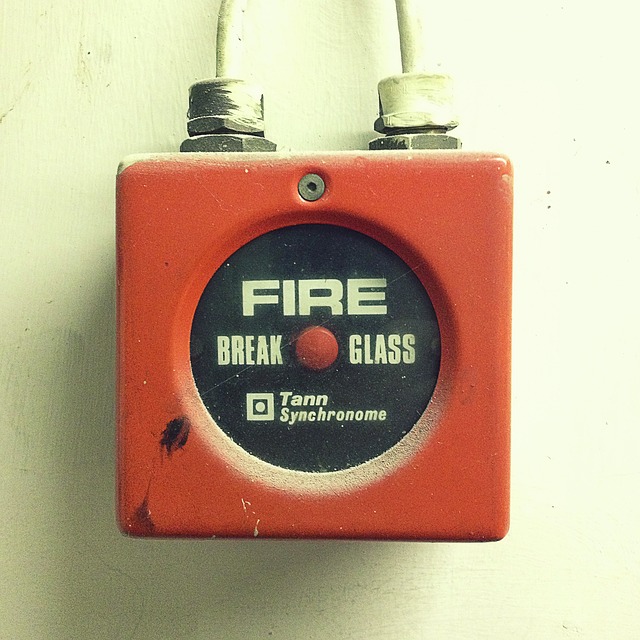Over 1 billion lost every year due to false alarms
In August 2019, BRE reported that more than £1 billion is lost every year due to false alarms.
These losses are due largely to the disruption and loss of productivity in businesses. The first research project into the causes of false alarms estimated that each false alarm costs businesses on average around £2.9k. The study provided a useful snapshot of the types of false alarms observed in the field but importantly proposed utilising a specialist fire alarm investigator to gather more reliable and meaningful false alarm data.
This led to another study during which an experienced fire alarm investigator accompanied Scottish Fire and Rescue Service (SFRS) personnel in the Greater Glasgow area between November 2014 and April 2015 attending 65 false alarms and four actual fires. Following analysis of the gathered data by a stakeholder group 35 recommendations were proposed to reduce false alarms, aimed at nine different sectors. Some of those recommendations were for business owners, facilities managers and health and safety managers to modify automatic fire detection systems to reduce the risk.
The recommendations encourage businesses to consider the use of staff alarms and investigation periods prior to calling the Fire and Rescue Service. Some recommendations propose solutions to help businesses, end users and responsible persons to reduce approximately 12.7% of false alarms due to manual call-point (MCP) activations. These propose that in areas where objects might collide with an MCP these should be fitted with side impact or other forms of protection, and MCPs at risk of being triggered accidentally should be fitted with protective covers.
Another of the recommendations proposed research to identify whether multi-sensors could reduce false alarms. This study has been completed and it was demonstrated that multi-sensors showed more resistance to five false alarm tests when compared with smoke detectors.
For full details of the research findings see the links below.
- https://www.bregroup.com/insights/research/causes-of-false-fire-alarms-in-buildings/
- https://www.bregroup.com/projects-reports/live-investigations-of-false-fire-alarms/
- https://www.bregroup.com/insights/research/the-performance-of-multi-sensors-in-fire-and-false-alarm-tests/
This article was originally published by BRE on 1 August.
[edit] Related articles on Designing Buildings Wiki
- BRE articles on Designing Buildings Wiki.
- Carbon monoxide detector.
- Fire detection and alarm system.
- Fire protection engineering.
- Fire.
- Heat alarm.
- Ionisation smoke alarm.
- Live investigations of false fire alarms.
- Multi-sensor alarm.
- New requirements for fire detection and alarm network systems IP 12 13.
- Optical smoke alarm.
- Project SHOUT.
- Smoke alarm.
- The causes of false fire alarms in buildings.
Featured articles and news
Apprenticeships and the responsibility we share
Perspectives from the CIOB President as National Apprentice Week comes to a close.
The first line of defence against rain, wind and snow.
Building Safety recap January, 2026
What we missed at the end of last year, and at the start of this...
National Apprenticeship Week 2026, 9-15 Feb
Shining a light on the positive impacts for businesses, their apprentices and the wider economy alike.
Applications and benefits of acoustic flooring
From commercial to retail.
From solid to sprung and ribbed to raised.
Strengthening industry collaboration in Hong Kong
Hong Kong Institute of Construction and The Chartered Institute of Building sign Memorandum of Understanding.
A detailed description from the experts at Cornish Lime.
IHBC planning for growth with corporate plan development
Grow with the Institute by volunteering and CP25 consultation.
Connecting ambition and action for designers and specifiers.
Electrical skills gap deepens as apprenticeship starts fall despite surging demand says ECA.
Built environment bodies deepen joint action on EDI
B.E.Inclusive initiative agree next phase of joint equity, diversity and inclusion (EDI) action plan.
Recognising culture as key to sustainable economic growth
Creative UK Provocation paper: Culture as Growth Infrastructure.
Futurebuild and UK Construction Week London Unite
Creating the UK’s Built Environment Super Event and over 25 other key partnerships.
Welsh and Scottish 2026 elections
Manifestos for the built environment for upcoming same May day elections.
Advancing BIM education with a competency framework
“We don’t need people who can just draw in 3D. We need people who can think in data.”























